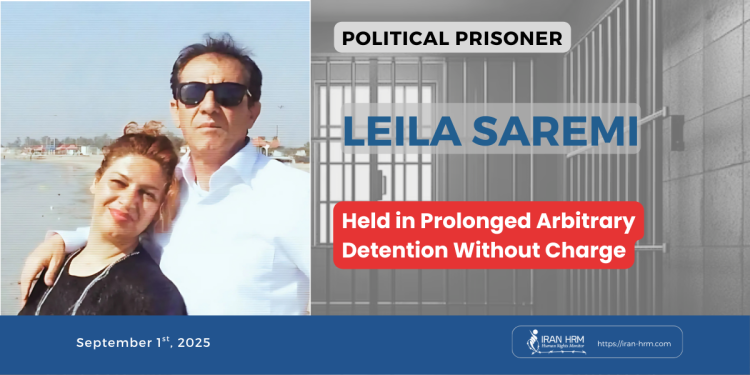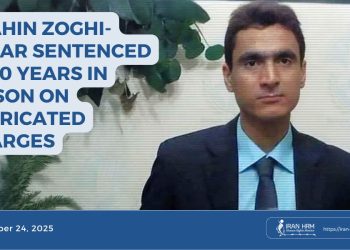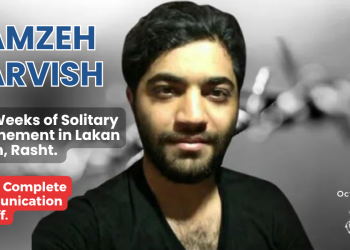More than 40 days have passed since the arrest of Leila Saremi, mother of imprisoned political activist Farzad Moazami Goodarzi, yet she remains in temporary detention without formal charges. Her transfer to solitary confinement in Borujerd’s Tircheh Bolook Prison and ongoing denial of basic rights have raised serious concerns about her health and safety.
Night Raid on the Moazami Goodarzi Family Home
In the early hours of Tuesday, July 22, 2025 at least 17 security agents stormed the Moazami Goodarzi family residence in Borujerd, Lorestan Province. Witnesses reported that the agents, traveling in five vehicles, entered the home violently without presenting a valid judicial warrant. During the raid, both Leila Saremi and her husband, Ahmad Moazami Goodarzi, were subjected to severe physical assault and subsequently detained.
The operation caused widespread panic in the neighborhood. According to neighbors, the security forces verbally abused and humiliated the family members, thoroughly searched the house, and confiscated all communication and electronic devices. The aggressive and humiliating nature of the raid has provoked widespread concern about the wellbeing of the family.
Solitary Confinement and Escalating Pressure on Justice-Seeking Families
Following her arrest, Leila Saremi was immediately transferred to Tircheh Bolook Prison in Borujerd. According to informed sources, she was placed in solitary confinement within hours and subjected to intensive interrogations.
Fellow inmates have confirmed that Saremi appeared to be in poor physical and psychological condition. Her continued isolation and lack of access to legal counsel or family members are being described as a form of “white torture” – a psychological pressure tactic. These actions appear intended to intimidate her son, Farzad Moazami Goodarzi, who remains imprisoned for his political activism.
More than 40 days after her arrest, no formal charges have been announced against Leila Saremi. Reports indicate that judicial and security authorities have repeatedly refused to provide information to her family or legal representatives.
Targeting Families as a Tool of Repression
Leila Saremi is not only a political detainee but also a mother burdened by concern for her imprisoned son. Her arrest represents a dual blow to a family that has already endured years of state pressure.
This case exemplifies a broader pattern in which Iranian authorities apply collective punishment tactics – targeting not just political prisoners, but also their families and associates. Such strategies serve as tools of systemic repression, aimed at silencing dissent and intimidating broader civil society.







